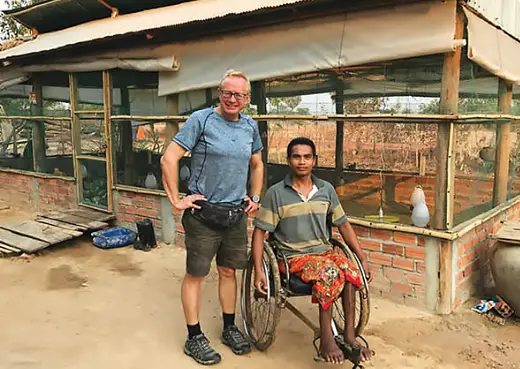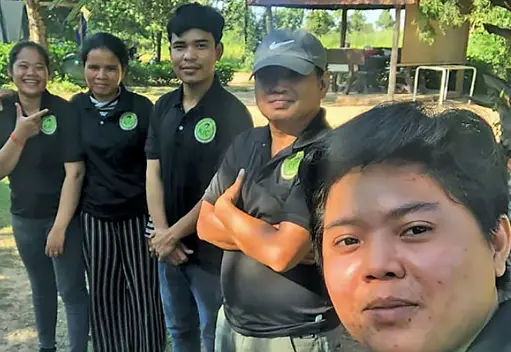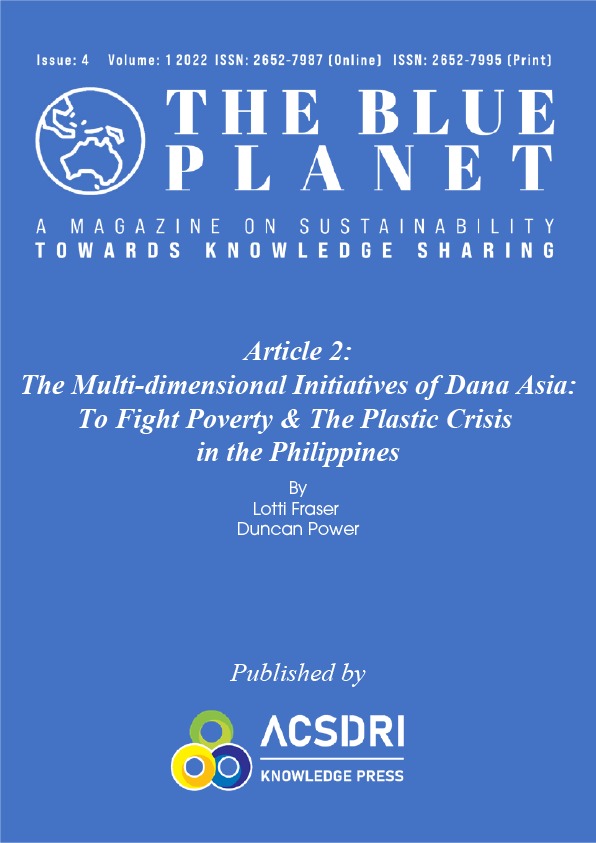WORLD OCEANS DAY 2022: Dana Asia’s collective action for the ocean
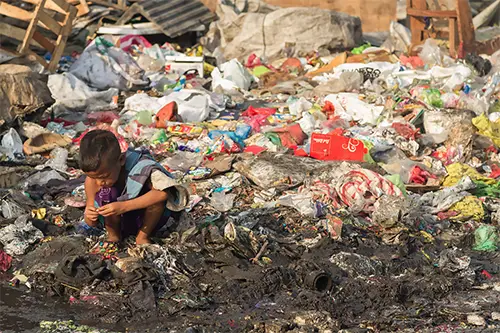
On June 8th 2022, we celebrate World Oceans Day with this year’s theme of ‘Revitalisation: Collective Action for the Ocean’. At Dana Asia, we take this opportunity to look at the world around us, consider the part we play in achieving a more sustainable future and ask ourselves: what more can we do to contribute positively to our planet?
Sustainability is at the heart of Dana Asia’s strategic priorities, channeling funding and advisory services to design projects to achieve social, economic, and environmental sustainability in the developing world. Dana Asia has an experienced team and an in-depth understanding of the complex challenges faced by supported communities in the Philippines and Cambodia. We also recognise that we are stronger as a collective and seek like-minded partners who offer different skills and experience for greater overall impact.
The planet faces a plastic pollution crisis and this problem is patently evident in the Philippines, the third-largest contributor of plastic waste in the world. According to a study by the Global Alliance for Incinerator Alternatives, the Philippines contributes an estimated 0.75 million metric tons of mismanaged plastic into the ocean every year. Waterways in the country’s capital, Manila, are heavily clogged with plastic waste and catastrophic flooding is becoming more and more common. Plastic use and production are steadily increasing, with the rise in online shopping and food delivery during the pandemic impacting this dire situation even further. Insufficient infrastructure and options for recycling mean the situation is quickly worsening with no practical solutions to date.
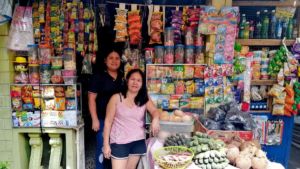
Recent research has shown that the average Filipino family produces 0.82kg of plastic waste per day, with the population using an estimated 60 billion sachets, 17.5 billion shopping bags, and 16.5 billion sandwich bags every year, with a culture driven toward single-use plastics as the ‘affordable’ option. ‘Tingi culture’ in the Philippines sees locals buying and trading in the smallest possible amounts, like a single cigarette or single-use sachet of shampoo. These plastic sachets are neither composted nor recycled, meaning they end up in landfills or clogging waterways. Large consumer goods companies target low-income markets through this tingi approach, claiming that selling in small quantities makes their products affordable for even the most impoverished.
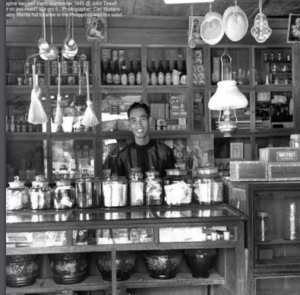
Not that long ago, refill stations and bring-your-own-container retailing were common practices throughout Filipino society, as was the use of natural packaging, such as banana leaves, in place of plastic. Now, however, the influx of large corporations capitalising on tingi culture has painted the picture of sachets as the more convenient, affordable option. Nowadays, zero waste retailing in ‘eco-stores’ is seen as a luxury only to be enjoyed by the wealthy. Eco-stores tend to be located in shopping malls and wealthier neighbourhoods, and often charge a premium for providing ‘sustainable’ options. However, grassroots, community-run eco stores are beginning to pop up around Metro Manila to provide basic goods at affordable prices accessible to all. These stores face several challenges in their setup and viability, such as finding reliable bulk suppliers, lack of flexible financing options to give them sufficient time to get established and lack of capital available for bulk purchasing.
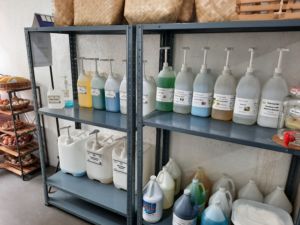
Dana Asia aims to address some of these challenges by developing an eco-store model and microfinance product that incentivises business owners to adopt a zero-waste approach as a viable and sustainable livelihood option. Dana Asia’s community eco-store model will make affordable basic goods accessible within urban poor communities to reduce household expenditure for families living in poverty. For business owners, eco-stores will be a source of income generation and for the community, the reduction of plastic waste will have environmental benefits. Training, advocacy and awareness-raising are essential elements of the eco-store to begin a shift in community mindset away from sachets and towards a return of tingi culture to the traditional refill approach. To learn from the experiences of existing community-based eco-stores, Dana Asia has partnered with the Akbayanihan Ecostore, located in Quezon City, Manila, to develop the business model and build training packages for other similar stores.
The plastic crisis in the Philippines is complex and in need of significant changes in government policy, infrastructure and technologies to provide practical solutions. However, there is hope on the horizon. In 2019, GAIA, through the Social Weather Stations (SWS), conducted a nationwide survey to gather information on Filipinos’ opinions on plastics and, in particular, their attitudes towards using recyclable or refillable containers when they shop. The survey revealed that 68% would be willing to use such containers to refill food condiments such as oil, soy sauce, and vinegar, and 42% would use them for products like shampoo and conditioner and cleaning products. This shows a willingness within Filipino society to adopt the zero-waste lifestyle as collective action against plastic pollution. Through community eco-stores, Dana Asia will work to educate on and advocate for plastic alternatives and develop environmentally sustainable initiatives at a community level to achieve social, economic and environmental impact.
The community eco-store is one of the elements of the Sustainability Hub that Dana Asia’s CEO, Duncan Power, is raising funds for on the Cycle for Recycling fundraising cycle through the heart of Australia, across four deserts, in July 2022. #cycleforrecycling

